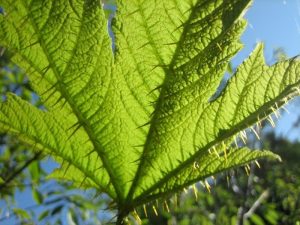 A brutally spiny plant, Oplopanax horridus has been widely regarded as one of the most important plants, medicinally and spiritually, for the indigenous groups in its native range. For more extensive information regarding it’s ethnobotanical values, there is a great publication at HerbalGram, through the American Botanical Society. It’s common name, devil’s club, is most likely related to the fact that this plant was used in a spiritual sense.
A brutally spiny plant, Oplopanax horridus has been widely regarded as one of the most important plants, medicinally and spiritually, for the indigenous groups in its native range. For more extensive information regarding it’s ethnobotanical values, there is a great publication at HerbalGram, through the American Botanical Society. It’s common name, devil’s club, is most likely related to the fact that this plant was used in a spiritual sense.
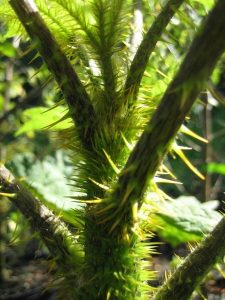 Because Oplopanax is closely related to the genus Panax, ginseng, it has been overharvested in some areas, reducing the species population size. Oplopanax horridus takes many years to reach the age of maturity and reproduce via seeds, therefore large groups of this plant are hard to come by, and should be appreciated when they are.
Because Oplopanax is closely related to the genus Panax, ginseng, it has been overharvested in some areas, reducing the species population size. Oplopanax horridus takes many years to reach the age of maturity and reproduce via seeds, therefore large groups of this plant are hard to come by, and should be appreciated when they are.
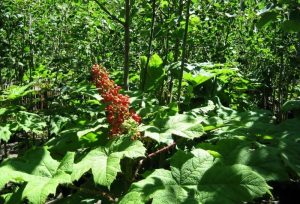 Oplopanax horridus grows as an upright shrub up to 9 ft (3 m) tall, with massive palmate leaves. Leaves, stems and bark, are all covered in large yellow prickles. Flowers are small and greenish white, presented in a pyramidal cluster. Fruit are bright red, in a terminal spike, a delicacy for bears.
Oplopanax horridus grows as an upright shrub up to 9 ft (3 m) tall, with massive palmate leaves. Leaves, stems and bark, are all covered in large yellow prickles. Flowers are small and greenish white, presented in a pyramidal cluster. Fruit are bright red, in a terminal spike, a delicacy for bears.
Devil’s club ranges from Alaska south to Oregon, mostly growing in moist, old growth forests. There is also a disjunct population in Ontario, Canada, and a few islands in Lake Superior.
Check out our current availability of Oplopanax horridus 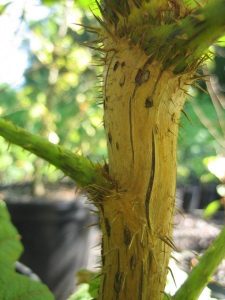

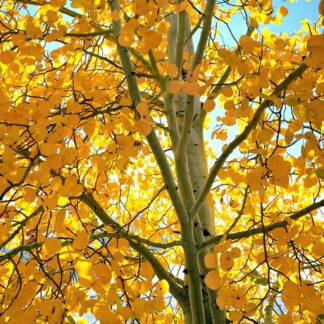
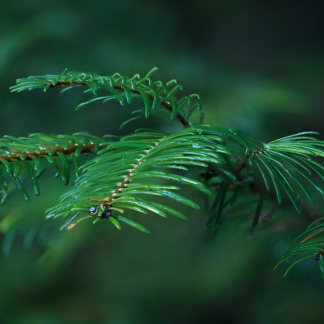
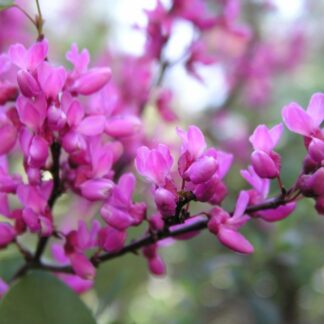


A simple introduction about O.horridus ,mainly on botanical aspect.
While Devils Club and Ginseng do share the genus Panax chemically they are different. It is possible to harvest this herb in such a way that it does not harm wild stands. I can not speak to all the uses of this plant but have used it for myself as a good tonic. I have also used it to intensify dreaming and made message oil using root bark. The new buds can be picked and eaten. In general before you wild harvest anything know 100% what you are picking, what you need it for, how much you need, and how to harvest respectfully. I would also add that many times there are very common plants with similar actions that should be considered first before seeking out some rare sensitive species. I am not saying that about Devils Club necessarily – but for example Burdock is a great tonic and I bet you can find someone who will beg you to pull it from their field.